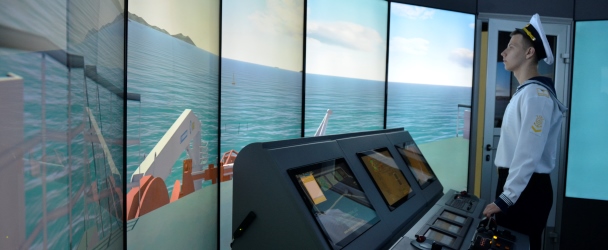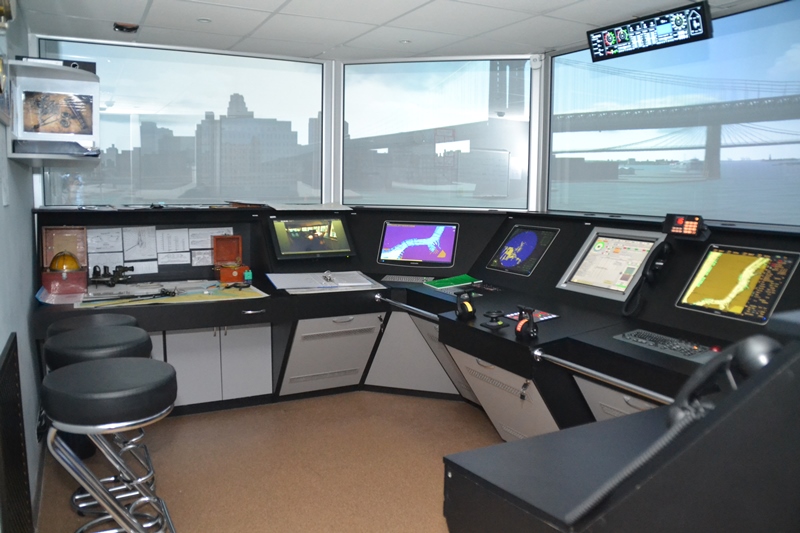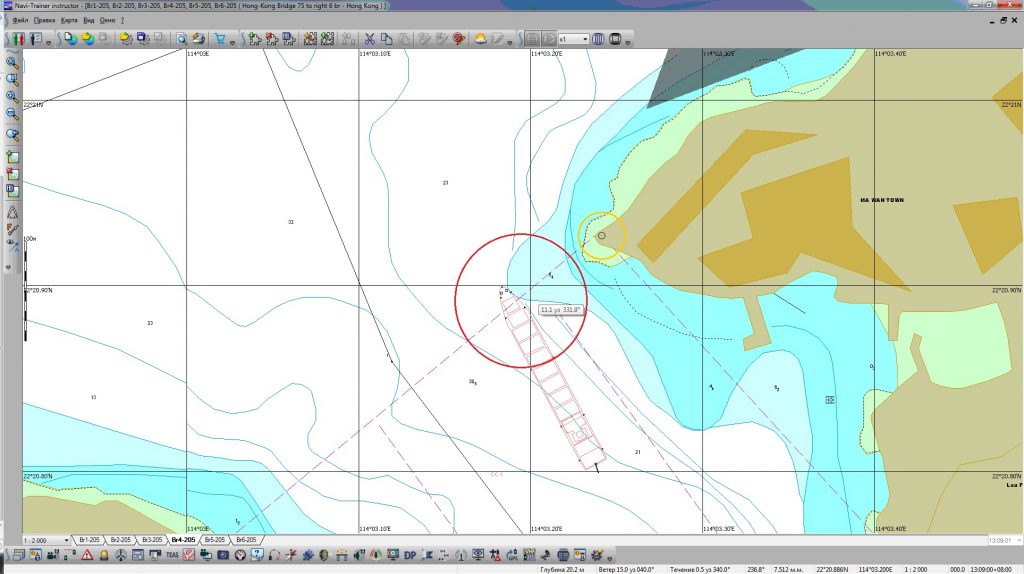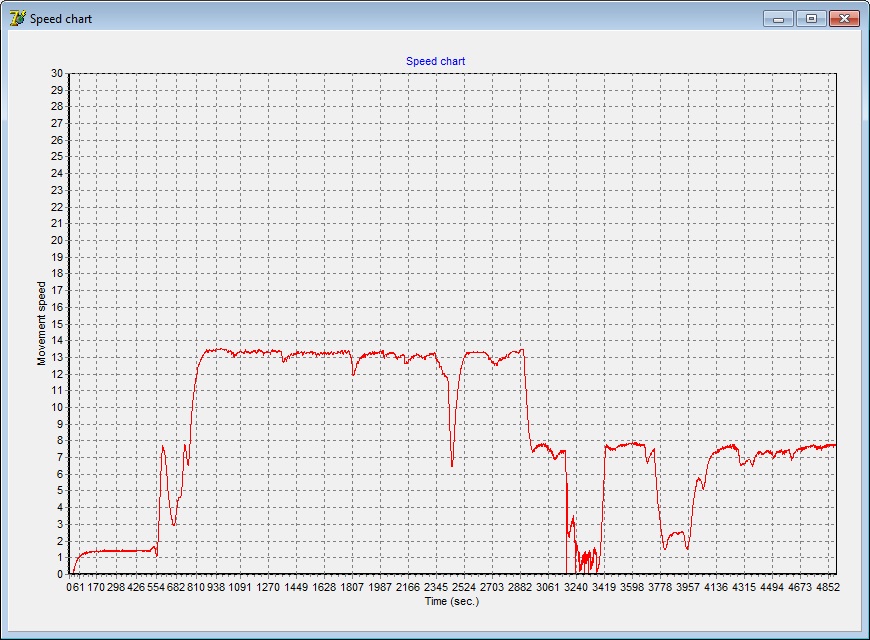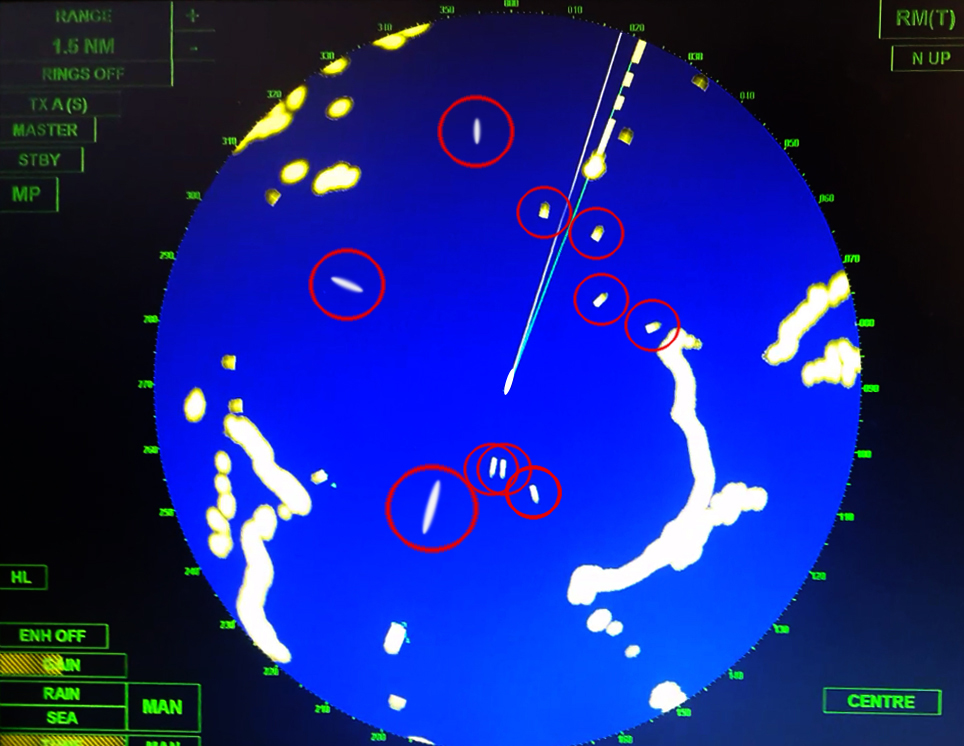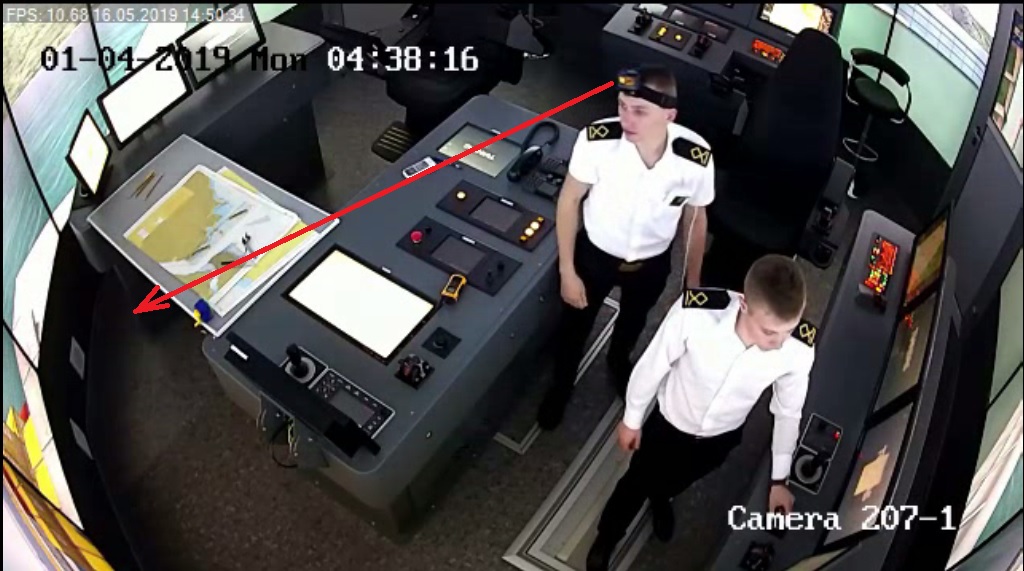The laboratory was created in 2020. The laboratory activities are regulated by the Laboratory Regulations of Kherson State Maritime Academy “Development of Decision Support Systems, Ergatic and Automated Ship Traffic Control Systems”, QMS 04-285-2020.
The material and technical base of the laboratory is KSMA laboratory-training complex. It includes the navigation simulators “Electronic Navigation Aids. Full-Function Navigation Bridge”, “Electronic Navigation Aids. Full-Function Simulator for Using of Radar and ARPA in Case of Crossing Situation”, “Dynamic Positioning Systems Full-Function Simulator” and “Information Navigation Systems”. Simulators equipment meets all the requirements of regulatory documents and has the necessary certificates, approve its compliance with real ship equipment.
Research tasks
The main task is to conduct a complex studies related to minimization of the human factor influence on the ship traffic control processes. Nowadays the human factor is the weakest link in the ship traffic control system and, according to statistics, is the cause of more than 85% of accidents and disasters at sea.
Research directions
- research and development of software for Decision Support System (DSS). DSS is a computer automated system, the purpose of which is to help an operator in making a decision in difficult conditions for a complete and objective analysis of subject activity. DSS emerged as a result of the merger of management information systems and database management systems. Various methods are used to analyze and form sentences in DSS: information retrieval, data mining, knowledge search in databases, reasoning based on precedents, simulation modeling, evolutionary computing and genetic algorithms, neural networks, situational analysis, cognitive modeling etc. Some of these techniques were developed within the framework of artificial intelligence;
- research and development of software for automated control systems of ship movement. The term “automated”, in contrast to the term “automatic”, emphasizes the retention of some functions of general nature by the human operator, or those that cannot be automated; this approach can significantly reduce the influence of the human factor, significantly increase accuracy and reliability, and optimize control processes;
- research and development of mathematical support for ergatic control systems for ship movement. The elements of an ergatic system are an operator or a group of operators and a technical device which is used by operator. The main features of such systems are socio-psychological aspects. Along with the disadvantages of such systems, such as the presence of a human factor, the ergatic system has a number of advantages, such as fuzzy logic, evolution, decision-making in non-standard situations. Today, the ergatic systems are used in aircraft control, in dispatch services at airports, railway stations, in the management of other facilities, where operator intervention in the facility management is currently a necessary condition for ensuring the reliable operation of such facilities;
- research of optimal mental states, anticipation processes and coping-strategies of subjects which influence the control of the ship.
Within certain directions:
- a simulation stand based on Navi Trainer 5000 navigation simulator has been developed. The simulation stand includes Navi Trainer 5000 navigation simulator and computing units integrated into its local area network with information exchange modules and functional software for the automated / automatic ship movement control system. The simulation stand allows you to develop and test the mathematical support of automated / automatic vessel traffic control systems in a closed circuit with Navi Trainer 5000 simulator using all its capabilities (navigation areas, weather conditions, mathematical models of control objects, objects of training scenes, visualization capabilities, etc.);
- the mathematical support of an automatic difference control system with many purposes, including maneuvering, has been developed. The operability and efficiency of the developed system of automatic distinction was tested by mathematical modeling on the developed stand of simulation modeling;
- the mathematical support of the system for automatic detection and parrying of failures of sensors and actuators. Its development was based on the comparison of the dynamics of the vessel’s movement and its predicted movement using mathematical models;
- the mathematical support of the automatic control system for the course movement of the vessel has been developed. It allows to increase the accuracy and reliability of control by evaluating and taking into account the deviation errors of the gyrocompass obtained from the mathematical model;
- the mathematical support of automatic control system of executing devices redundant structures has been developed. It allows organizing the movement of the vessel without drift, including the presence of external influences of wind and current, due to this, the hydrodynamic resistance to the movement of the vessel, fuel consumption and harmful emissions into the atmosphere will be reduced;
- the mathematical support of the diagnostic system for the perception of navigation hazard when performing complex maneuvers has been developed.;
- the mathematical support for experimental identification of the navigator’s attention in ergatic systems of sea transport has been developed.;
- the formal approaches to identifying the factors of cadets’ fatigue using marine navigation simulators have been investigated;
- the mathematical support of the decision support system in case of negative manifestation of the human factor has been developed;
- an experimental study of the effectiveness of the formation of Captain-Pilot relationship during the simulator training was carried out;
- investigated the change in the time of navigators in critical situations;
- investigated the automated identification of the operator’s expectations in maritime transport
- analyzed the changes in the emotional state of cadets caused by a long stay at sea;
- the psychophysiological features of the future seamen’ response to stressful situations have been investigated;
- research of the issues of forecasting events by Captains using Kelly’s diagrams etc.

